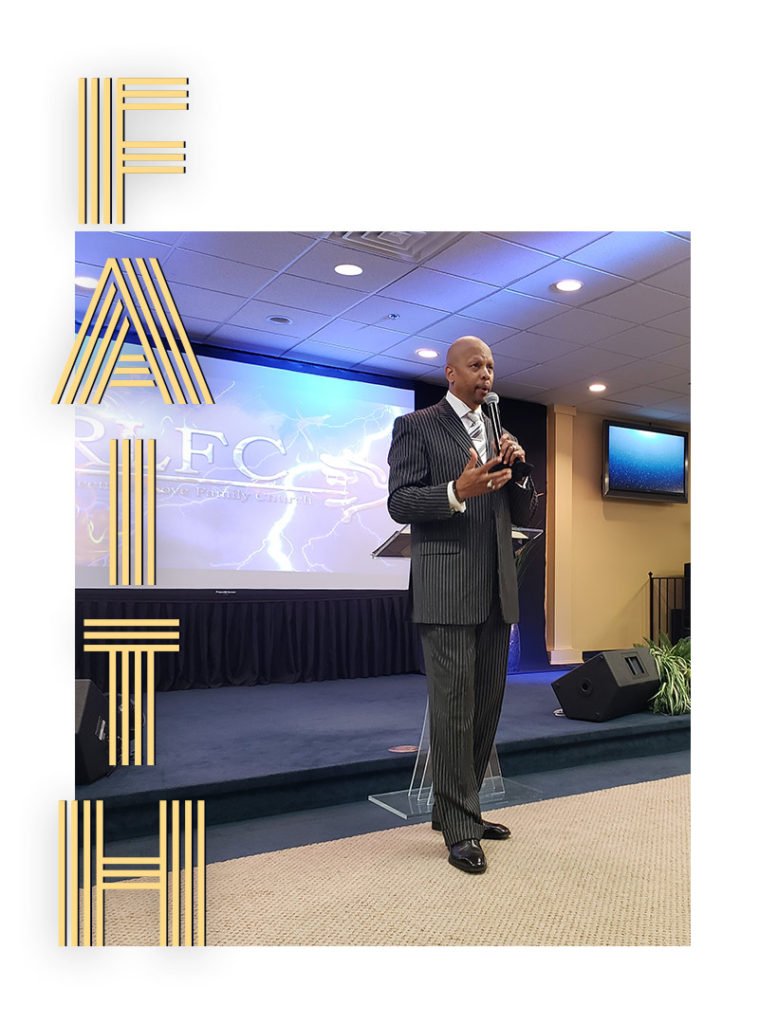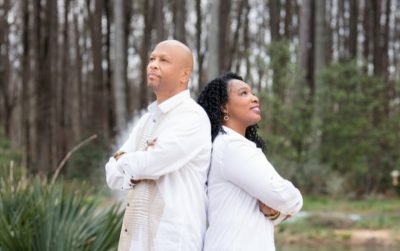
The Bible is the inspired word of God. It is the product of holy men of old who spoke and wrote as they were moved by the Holy Spirit. We accept the New Covenant, as recorded in the New Testament, as our infallible guide in matters pertaining to conduct and doctrine (II Timothy 3:16; I Thessalonians 2:13; II Peter 1:21).
What the Scriptures Say
The Bible is the inspired word of God. It is the product of holy men of old who spoke and wrote as they were moved by the Holy Spirit. We accept the New Covenant, as recorded in the New Testament, as our infallible guide in matters pertaining to conduct and doctrine (II Timothy 3:16; I Thessalonians 2:13; II Peter 1:21).
Our God is one, but manifested in three persons – God the Father, the Son and the Holy Spirit (Philippians 2:6; Matthew 3:16-17).
Man is a created being made in the likeness and image of God. Through Adam’s transgression and fall, sin came into the world. “All have sinned, and come short of the glory of God. As it is written, There is none righteous, no, not one.” Jesus Christ, the Son of God was manifested to undo the work of the devil. He gave His life and shed His blood to redeem and restore man back to God God (Romans 5:12; Romans 3:23; Romans 3:9-10; I John 3:8; Galatians 3:13-14). Salvation is the gift of God to man. It is separate from works and the law, and is made operative by grace through faith in Jesus Christ and produces works acceptable to God (Ephesians 2:8).
Man’s first step toward salvation is godly sorrow that works repentance. The new birth is necessary to all men, and when it is fulfilled, it produces eternal life (II Corinthians 7:10; I John 5:12; John 3:3-5).
Baptism in water is by immersion and is a direct commandment of our Lord. It is for believers only. This ordinance is a symbol of the Christian’s identification with Christ in His death, burial, and resurrection (Matthew 28:19; Romans 6:4; Colossians 2:12; Acts 8: 36-39). The following recommendation regarding the Water Baptismal formula is adopted: “On the confession of your faith in the name of the Father, Son and Holy Ghost and in Jesus Name. Amen”
The baptism in the Holy Ghost and with fire is a gift from God and promised by the Lord Jesus Christ to those who are believers in this dispensation, and is received subsequent to the new birth. This experience is accompanied by the initial evidence of speaking in other tongues as the Holy Spirit, Himself, gives utterance (Matthew 3:11; John 14:16-17; Acts 1:8; Acts 2:38-39; Acts 19:1-7; Acts 2:3-4).
SANCTIFICATION. The Bible teaches that without holiness, no man can see the Lord. We believe in the doctrine of sanctification as a definite progressive work of grace, which commences at the time of regeneration and continues until the consummation of salvation (Hebrews 12:14; I Thessalonians 5:23; II Peter 3:18; II Corinthians 3:18;Philippians 3:12-14; I Corinthians 1:30).
Healing is for the physical illness of the human body and is wrought by the power of God through the prayer of faith, and by laying on of hands. It is provided for by the atonement of Christ, and is the privilege of every member of the Church today (Mark 16:18; James 5:14-20; I Peter 2:24; Matthew 8:17; Isaiah 53: 4-5).
The angels said, “this same Jesus… shall so come in like manner.” His coming is imminent. When he comes, “… and the dead in Christ shall rise first: Then we which are alive and remain shall be caught up together with them in the clouds, to meet the Lord in the air.” (Acts 1:11; I Thessalonians 4:16-17) Following the tribulation, He shall return to earth as King of kings and Lord of lords and together with His saints who shall be kings and priests. He shall then reign a thousand years (Revelation 20:6; Revelation 19:16; Jude 14).
The one who physically dies in his sins, without Christ, is hopelessly and eternally lost in the lake of fire, and therefore, has no further opportunity of hearing the gospel or for repentance. The lake of fire is literal. The terms “eternal” and “everlasting” are used in describing the duration of the punishment of the damned in the lake of fire. These terms carry the same thought and meaning of endless existence as used in noting the duration of joy and ecstasy of the saints in the presence of God (Hebrews 9:27; Revelation 19:20; Hebrews 6:1-2).
We partake of the Lord’s Supper to show the Lord’s death till He comes (I Corinthians 11: 23-31). The bread symbolizes the Lord’s broken body (Isaiah 53:5; I Corinthians 11:24). The cup represents the new covenant in His blood, which provides us forgiveness and relationship with God (Hebrews 9; I Corinthians 11:25).
This is the simple belief that the power and anointing, or any other necessary quality, can be transmitted by one person touching another. Laying on of hands was practiced by the Levitical priesthood. Jesus practiced it in Mark 10:13-16as a blessing, and it is our procedure for baby dedication instead of baptism. We also practice laying on of hands for: healing (Mark 5:22-23; Acts 28:8); to receive the Holy Ghost (Acts 8:16-18); to believe words spoken, to receive anointing and to cultivate the anointing (I Timothy 4:14); for ordination to consecrate and receive the necessary ministry tools (I Timothy 4:14).



